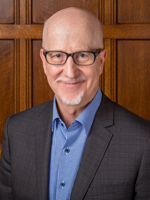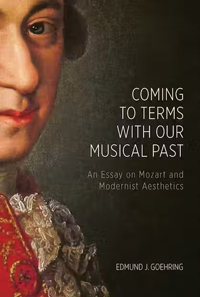Ed Goehring

Office: TC 224
Phone: (519) 661-2111 x85440
Email: egoehrin@uwo.ca
Edmund J. Goehring is Professor of Music History at Western University. He received his PhD from Columbia University, and his main interests are aesthetics, historiography, and criticism, especially as they bear on theatre and opera at the time of Mozart. His publications have appeared in the Cambridge Opera Journal, Eighteenth-Century Music, Eighteenth-Century Studies, Film International (on Martin McDonagh’s In Bruges), Publications of the Modern Language Association, and Studi Verdiani.
Awards include fellowships from the National Endowment for the Humanities and the Social Sciences and Humanities Research Council of Canada, and his book Coming to Terms with Our Musical Past (Boydell, 2018) was the winner of the 2019 Marjorie Weston Emerson Award from the Mozart Society of America and is available as an Open Access title at https://openaccess.boydellandbrewercms.com/?id=-267553
Some press for Coming to Terms:
 “Exhaustively researched and documented…, [this book] considers such concepts as intention, ambiguity, mimesis, chance and necessity—each with its own chapter—in the light of modernist concepts, and with a critique as to whether that is adequate to understand Mozart's works, divorced from the magic and genius that many music lovers have long associated with him. A detailed and impressive set of arguments, concluding that the limits of modernist aesthetics are inadequate to understanding ‘a Mozartean beauty—where the familiar, the superabundant, and the uncanny meet’.” —American Record Guide
“Exhaustively researched and documented…, [this book] considers such concepts as intention, ambiguity, mimesis, chance and necessity—each with its own chapter—in the light of modernist concepts, and with a critique as to whether that is adequate to understand Mozart's works, divorced from the magic and genius that many music lovers have long associated with him. A detailed and impressive set of arguments, concluding that the limits of modernist aesthetics are inadequate to understanding ‘a Mozartean beauty—where the familiar, the superabundant, and the uncanny meet’.” —American Record Guide
“This probing essay mounts a sustained critique of latter-day critical approaches to Mozart’s music. In so doing, Goehring connects seemingly disparate methods (from Adorno and his followers to figures like Gjerdingen and Hepokoski) as variant strains of a common Modernist agenda that stands against perceived aesthetic values of the 19th-century. As a counterforce to these Modernist trends, Goehring wishes to resist the turn to abstraction and to resurrect an older language of enchantment and its embrace of mystery. Informing his critique is a passionate defense of discredited aesthetic concepts such as intention, mimesis, and the self, as well as a plea to relish the particular rather than reduce particulars to some general context.” —Scott Burnham
A selection of graduate seminars offered:
- The concept of genius in music historiography
- Allegory on the European stage
- Neoplatonism in music and the arts
- The Magic Flute
- Mahler’s Third Symphony
- Mozart and Modernity
- Mozart and the promise of the Enlightened stage

